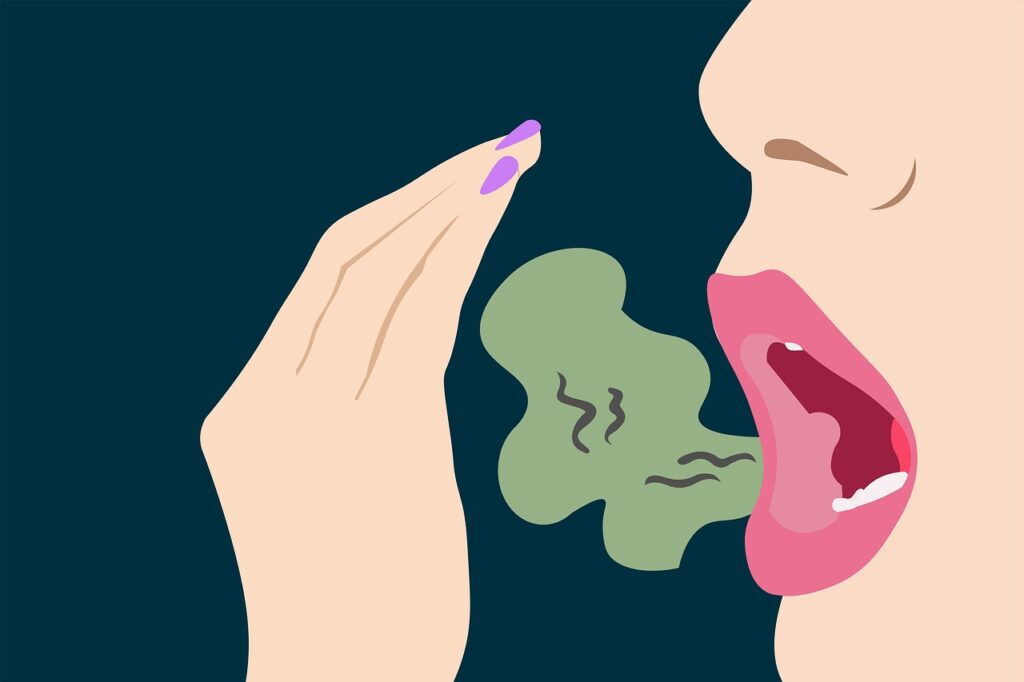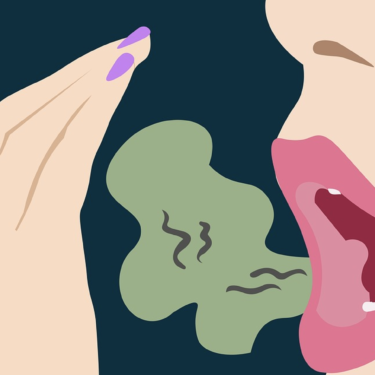Being an interior designer means that we’re judged on our aesthetics – not just the aesthetics of the rooms we design, but also how we dress and carry ourselves. That means that even more than in other jobs, our personal hygiene and general appearance is linked to our professional success.
So what do you do if you have an employee who’s personal grooming is not up to snuff? Specifically, how do you tell a team member that their breath is noticeable? (And I don’t mean noticeably fresh. 🥴)
Sure, you can go the passive route and start putting out boxes of mints everywhere. Or you can post an all-employees memo “reminding” folks about the standards of personal care you expect from the staff. But not only do you run the risk of the intended recipient not clueing in to your subtle message, but the rest of the team probably knows exactly who the memo is for, and won’t appreciate being called out generally for something everyone else is doing well.
Besides, it’s cowardly.
To be a great leader, you must have courage. As employers and managers our job is to set our team members up for success, even when (or especially when) that means navigating delicate conversations, like figuring out how to tell an employee they have bad breath.
Yes, you are going to feel embarrassed, and so is your team member. The key is to recognize that addressing the situation is the kind choice, no matter how uncomfortable or embarrassed you might feel. If you *don’t* have the chat with your team member, then among other things:
- the problem won’t magically go away, and the longer you let it go, the tougher the conversation will feel
- they’ll be talked about behind their backs and even avoided by other team members, creating a toxic workplace
- they’ll be held back professionally, whether in your company or someone else’s
So, assuming you have a great employee you want to keep on the team, how the heck are you supposed to have this conversation?

How to tell an employee they have bad breath
- Choose a place that is private: you don’t need someone eavesdropping on this conversation.
- Choose a low-stress time of day: Chatting when either you or the employee is already tired or stressed adds obstacles to a good outcome that you don’t need, so try to chat on a day and time when both you and the employee will feel the most rested and least stressed.
- When you start, begin with sincere praise: Tell them why you’re so happy to have them on the team.
- Then say something like: “Because I am so happy you are a member of our team, I need to bring something up that is a little delicate.”
- Then don’t beat around the bush, just say it: “I noticed on multiple days in the office that your breath is not fresh, and it’s noticeable even when I’m standing a few feet away.”
- Important: DONT say “so-and-so noticed…” or “we’ve noticed…” – that will cause more embarrassment than needed. Just focus on the facts and your own experience with the team member.
- If you haven’t personally noticed this issue, then first try to put yourself in a position where you can evaluate the problem yourself, especially if the complaint has only come from one team member.
- Be supportive, and consider helping them understand *why* it’s important, like: “It’s important that we address this because it could hold you back professionally.” If the are a team member that interacts with clients, you can consider adding “I want our clients to think as highly of you as I do, and I wouldn’t want something like bad breath to distract clients from your advice and talents.”
- Be understanding and honest, and find out where they are at: “I don’t know if you are already aware of this problem, or what you’ve tried, but I’m here to help figure out some resources if you don’t know where to start.”
- Set them at ease, and make them a partner: “Your job is not in jeopardy, but it’s important that we fix this. Are you aware of this issue? Is this something you think you can take care of?”
- Set clear expectations and get team member buy-in: Let’s check-in in two weeks so I can let you know if I’ve noticed an improvement, and you can share with me any challenges you facing in solving this problem.”
- Finish with more praise, and a thank you: “I really value your work here because you are so good at X, Y, & Z. I really want to see you succeed here and do everything I can as your boss/employer to make sure you can go as far as possible in your professional journey. Thank you for being willing to hear me out on this.”
KEY POINT #1: have this conversation SOON. Try to chat with your team member within one week of discovering the problem. The longer you wait, the more the employee will be embarrassed knowing he or she was making this first impression for so long without someone caring and courageous enough to bring it up.
KEY POINT #2: Don’t make it a bigger deal than it is. Stay positive, fact-based, and solution-oriented. Use non-judgmental, non-charged words like “noticeable” or “not fresh” rather than “stinky” or “bad.” Assume, and expect, a good outcome.
Keep it simple.
Again, it’s going to feel embarrassing, but don’t turn it into a bigger deal than it needs to be. Everything I said above can summed up into a short conversation like:
“Hey Carol, I am so happy you’re a member of our team! You’re doing really great work meeting all your deadlines and keeping our clients informed and happy!
I need to bring something up that is a little delicate. I’ve noticed on multiple days in the office that your breath is not fresh, and it’s noticeable even when I’m standing a few feet away. It’s important that we address this because it could hold you back professionally, and I want to do everything I can to make sure I’m setting you up for success!
Is this something you’re aware of, and do you have any ideas on where to start addressing it? I’m here to help figure out some resources if you don’t know where to start.
It’s important that we fix this, how about we check-in in two weeks so I can let you know if I’ve noticed an improvement, and you can share with me any challenges you facing in solving this problem.
I really value your work here because you are so good at X, Y, & Z. Thank you for being willing to hear me out on this.”
What are some ways to fix bad breath?
Here is a great article with 10 tips for fixing bad breath. My fav? Hydration! “Morning breath” isn’t just something that happens when we first wake up – it can happen anytime we aren’t generating enough saliva and our mouth gets dry. Just sipping on water throughout the day can massively improve bad breath!
You’ve got this!
Bad breath *will* hold someone back in their career, so If you truly care about the team member, have this conversation. For the good of your colleague’s professional future, it’s essential!
May your design business always make you seriously happy!
❤️ Rebecca

Hi! I’m Rebecca!
When I closed my design biz to move to Paris I discovered how hard it was for me to refer my clients to other designers because I couldn't tell what the designer did, who they did it for, or what they delivered!
Now I'm on a mission to help designers nail their niche and set clear client expectations.
It's all about being able to clearly communicate what you do, who you do it for, what they should expect, and what they'll get, and it's the #1 key to getting hired by clients you love to work on projects you're proud of!

